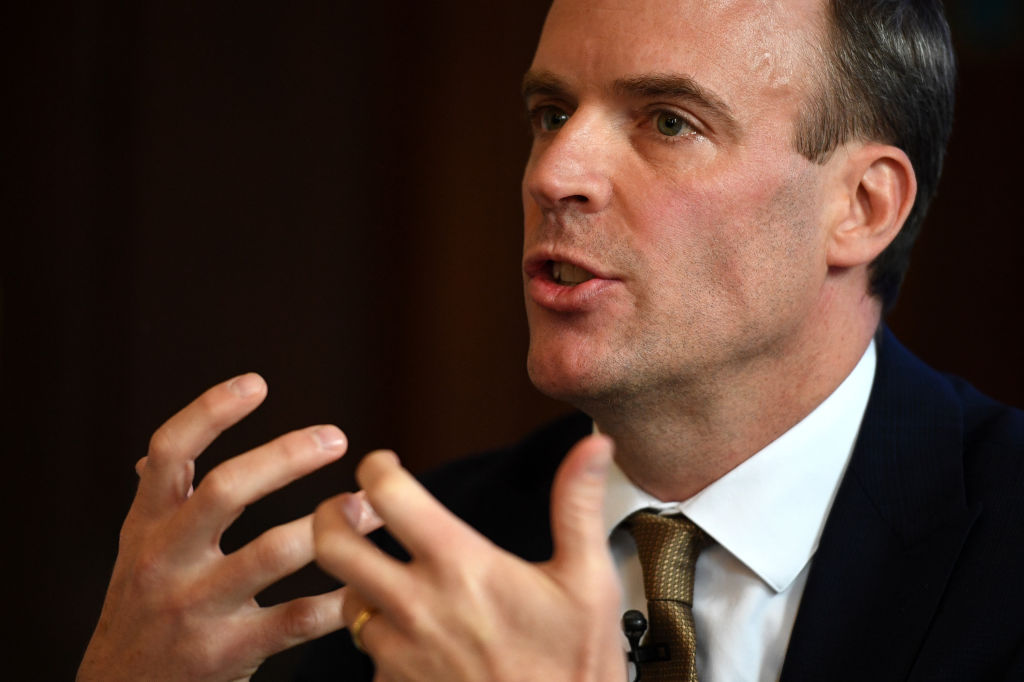Following the Prime Minister’s admission to hospital on Sunday, Boris Johnson remains in St Thomas’s hospital ‘for observation’. While a No. 10 spokesman insists that he remains in ‘good spirits’ and continues to be in touch with colleagues, questions remain when it comes to whether he will be forced to take a few days out for his recovery. Downing Street has been at pains to say that Johnson remains in charge but in truth his de facto deputy Dominic Raab is already taking on an increased role behind the scenes. The Foreign Secretary chaired the morning coronavirus meeting with the heads of each sub-committee.
When Raab was first announced as the so-called ‘designated survivor’ of government, there were questions both from government critics and privately from colleagues as to how well-suited he was to the role. However, there was never really any doubt that Raab would be the stand-in should Johnson fall ill. As First Secretary of State, he is the de facto deputy.
Raab was appointed to that position when Johnson formed his Cabinet on winning the Tory leadership contest. Raab was the obvious choice for several reasons. Firstly, he was trusted by both the Prime Minister and No. 10 aides – some former Vote Leave staff had worked on Raab’s leadership campaign – while other Vote Leave staff had backed Johnson. When the contest was over, they remained on amicable terms. Most crucially, the biggest issue back then was Brexit. Given that, if anything, Raab had appeared more hardline on his Brexit red lines than Johnson during the contest (clearly supporting prorogation if deemed necessary), his appointment sent a message that whatever happened, the government Brexit plan would be enacted.
Since then, Raab has emerged as one of a handful of ministers No. 10 trusts to lead on their brief. Where certain ministers have all but disappeared from public view, Raab has led on several issues. Clearly the skills required to lead the government response to a global pandemic differ to those that are needed to enact a Brexit strategy. Should Johnson have to take considerable time out, there are some in government who question whether Raab has the emotional intelligence to lead the public response. But on the issue of whether Johnson trusts Raab to act on his behalf, the Foreign Secretary comfortably passes the test.







Comments